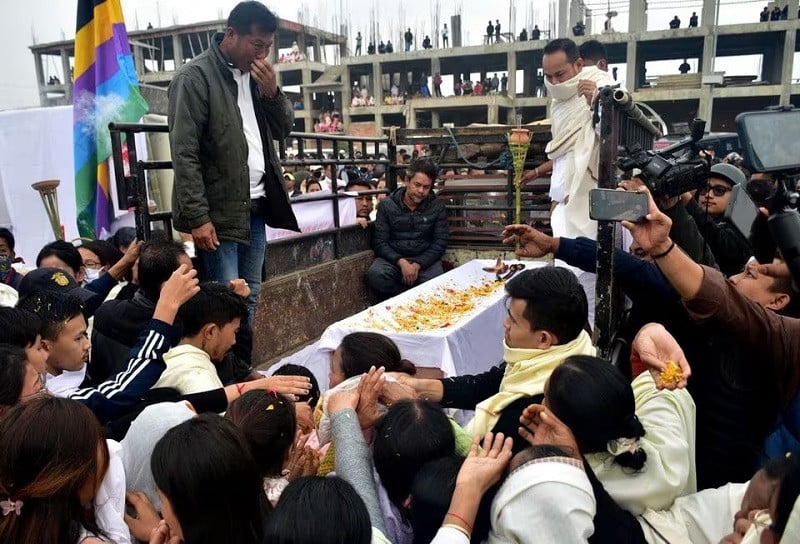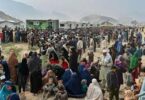According to the media, at least 200 people have been killed in ethnic violence in Manipur, India’s northeastern state since fighting broke out between the predominantly Hindu majority and Christian minority in May 2023. The central government of India finally managed the burial of 87 people killed during bitter violence over the past eight months, as the rival militias set up blockades to keep out members of the opposing community, while families of the deceased were not able to travel for months to collect the bodies of their relatives.
India is witnessing a sharp rise in Hindu extremism that has squeezed the Indian soil for religious and ethnic minorities from Kashmir to Nagaland and Punjab to Manipur. Indian minorities including Muslims, Sikhs, Christians, Dillats, and others are primary victims of RSS-led Hindu extremist gangs, who have a so-called plan for the creation of Maha Bharat by expelling Indian minorities out of their country or perishing their lives through violence and massacres. According to human rights groups, local leaders often exacerbate ethnic divisions for political gain. Currently, Hindu monks’ agenda is resonating with increasingly encouraged vigilante groups, while Muslims and Christians are their primary targets. The vigilantes commonly beat the people accused of disrespecting cows, dragged couples out of trains, cafes, and homes on suspicion that Hindu women might be seduced by Muslim men; and burst into religious gatherings where they suspect Hindu people are being converted to Muslim or Christian.
Historically, minority rights in India is a long-held issue that emerged in the Hindu-majority nation just after getting independence from British colonial rule in August 1947. Besides, state suppression in Indian-held Jammu and Kashmir, Juna gadh, and Gurdaspur, the Muslims faced hate crime, communal violence, and prejudice at the hands of the Hindu majority due to their perceived bifurcation of Akund Bharat after Pakistan got independence. However, these faultlines became more visible and deeper after the Modi-led pro-RSS BJP regime came to power nearly a decade ago. Modi government not only encouraged Hindu gangs’ violence for political purposes but further buttressed religious and ethnic polarization in Indian society by introducing discriminatory legislation such as the Citizenship Amendment Act (CAA) and the National Register of Citizens (NRC). These policies not only sparked protests but adversely affected minority communities, particularly Muslims.
The calls for anti-Muslim violence even genocide across India are moving from the fringes to mainstream Indian society, while Prime Minister Narendra Modi and his top aides keep silent on the situation. Meanwhile, New Delhi’s slackness in resolving the Hindu-Christian conflict in Mani Pur further exposes India’s biased conduct toward its minorities.
The situation is complex, and the treatment of minorities under the Modi regime is a globally recognized issue. Worship places including mosques and Churches are regularly being attacked by the organized mob, while hundreds of mosques have been enlisted to the hit list of Hindu fascist organizations, on the ungrounded claims that those mosques were built on temples. Although, human rights organizations regularly highlight gross human rights abuses in India, while US International Religious Freedom Institute has recently urged the Biden administration to designate India as a Country of Particular Concern (CPC) due to its poor record. It is high time, that the global community plays its role and takes decisive actions against the Modi government, so the religious and ethnic minorities get some relief amid growing Hindu majoritarianism comes to a halt.







